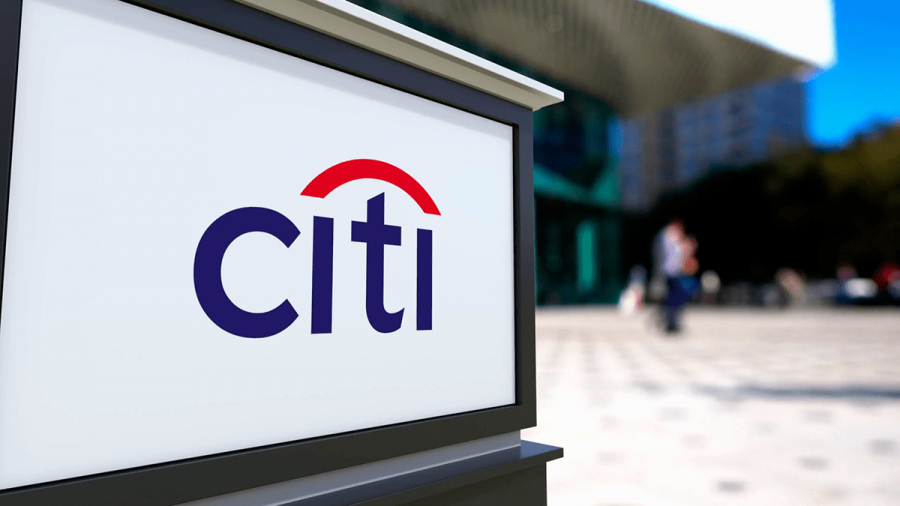Revenues increased 11% over the prior-year period, with growth in both net interest income and noninterest income.
Higher net interest income was primarily due to the benefits of higher rates, as well as strong volumes in Institutional Customer Group (ICG) and Personal Banking and Wealth Management (PBWM).
Noninterest income also increased, driven by Fixed Income Markets and ICG Services, which more than offset lower noninterest income in ICG Investment Banking and PBWM.
Earnings of $4.5 billion declined 27% from the prior-year period, as higher credit costs and an 8% increase in expenses more than offset an 11% increase in revenues.
Earnings per share of $2.19 decreased 23% from the prior year period, reflecting lower earnings, partially offset by an approximate 4% decrease in shares outstanding.
Percentage comparisons throughout this release are calculated for the second quarter of 2022 compared to the second quarter of 2021, unless otherwise specified.
Citigroup
Citigroup revenue of $19.6 billion in Q2 2022 increased 11%, driven by higher rates, client activity in Markets and continued momentum in the U.S. card business, partially offset by a slowdown in Investment Banking activity, as well as investment fee headwinds in Global Wealth Management.
Citigroup operating expenses of $12.4 billion in 2Q2022 increased 8%, driven by continued investments in Citi's transformation, higher business-led investments and volume-related expenses, partially offset by productivity savings.
Citigroup's credit cost of $1.3 billion in the second quarter of 2022 compared to $1.1 billion in the prior year period, reflecting a net accrual in the allowance for credit losses (ACL) of $0.4 billion, compared to a net ACL release of $2.4 billion in the prior year period, partially offset by lower net credit losses.
Citigroup's earnings of $4.5 billion in Q2 2022 declined 27% from the prior year period, driven by higher credit costs and higher expenses, partially offset by higher revenues. Citigroup's actual tax rate was 19.8% in the current quarter compared to 15.7% in Q2 2021. The higher tax rate for the current quarter reflects lower tax benefits related to certain non-U.S. operations.
Citigroup's total provision for credit losses on loans was approximately $16.0 billion at quarter end, with a reserve to funded loan ratio of 2.44%, compared to $19.2 billion, or 2.88% of funded loans, at the end of the prior year period.
Total unearned assets decreased 31% from the prior year period to US$ 3.0 billion.
Consumer non-accrual loans decreased 35% to $1.4 billion, while corporate non-accrual loans of $1.7 billion decreased 26% from the prior year period.
Citigroup's period-end loans were $657 billion at the end of the quarter, a 3% decrease from the prior-year period.
Citigroup's period-end deposits were $1.3 billion at the end of the quarter, a decrease of 1% compared to the prior-year period.
Citigroup's book value per share of $92.95 and tangible book value per share of $80.25 increased 2% and 3%, respectively, largely driven by earnings and fewer shares outstanding, partially offset by adverse movements in the cumulative component of other comprehensive income from equity and common dividends. At quarter end, Citigroup's CET1 Capital ratio was 11.9% versus 11.4% in the prior quarter. Citigroup's SLR for the second quarter of 2022 was 5.6%, unchanged from the prior quarter. During the quarter, Citigroup returned a total of $1.3 billion to common shareholders in the form of dividends and repurchases.
Institutional Clients Group
ICG revenues of $11.4 billion increased 20% (including gain/(loss) on loan hedges (6), driven by Services and Markets, partially offset by a decline in Investment Banking revenues.
Services revenue of $4.0 billion increased 28% compared to the prior year. Treasury and Intermediary Solutions revenues of $3.0 billion increased 33%, driven by 42% growth in net interest income, as well as 17% growth in noninterest income, reflecting strong growth with both medium and large corporate clients.
Securities Services revenues of $994 million increased 16%, as net interest income increased 41%, driven by higher interest rates across all currencies, and noninterest income increased 8%, reflecting elevated levels of corporate settlement activity in the Issuance Services
Markets revenues of $5.3 billion increased 25% compared to the prior year, driven by higher volatility leading to increased client participation.
Fixed Income Markets revenues of $4.1 billion increased 31%, primarily reflecting strong client participation in the foreign exchange, currency and commodity businesses.
Securities Markets revenues of US$ 1.2 billionincreased 8%, driven by strong equity derivatives performance, partially offset by lower cash client activity and a net decrease in preferred balances, as lower asset valuations more than offset new client balances.
Banking revenue of $2.1 billion decreased 4% compared to the prior year period (including gain/(loss) on loan hedges). Excluding the gain/(loss) on loan hedges, Banking revenues of $1.6 billion decreased 28% compared to the prior year.Investment Banking revenues of $805 million decreased 46%, as increased geopolitical uncertainty and the general macroeconomic backdrop reduced capital markets and M&A activity. The decline in Investment Banking revenues was partially offset by higher revenues in Corporate Lending.
ICG operating expenses of $6.4 billion increased 10%, driven by continued investments in Citi's transformation, higher business-led investments and volume-related expenses, partially offset by productivity savings.
ICG credit cost was $(202) million compared to $(694) million in the prior year period, with a net ACL release of $245 million and net credit losses of $18 million.
The release was largely driven by a reduction in Russia-related risk in the quarter, partially offset by a conformation due to increased macroeconomic uncertainty.
ICG's earnings of $4.0 billion were up 16% year-over-year, driven by higher revenues, partially offset by higher expenses and higher credit costs.
Personal Banking and Wealth Management
PBWM revenues of $6.0 billion increased 6%, as growth in net interest income was partially offset by a decline in noninterest income, largely driven by partner payments in Retail Services.
U.S. Personal Banking revenue of $4.1 billion increased 9%. Branded Cards revenue of $2.2 billion increased 10%, driven by higher interest on higher balance loans.
New accounts and card spending volumes increased 18%, while average loans increased 11%. Retail Services revenue of $1.3 billion increased 7%, driven by higher interest on higher loan balances, partially offset by higher member payments. Retail Banking revenues of $656 million increased 6%, largely driven by higher spreads and deposit volumes.
Global Wealth Management revenues of $1.9 billion were flat as investment fee headwinds, particularly in Asia, were offset by growth in average deposits and loans.
PBWM operating expenses of $4.0 billion increased 12%, driven by continued investments in Citi's transformation, higher business-led investments and volume-driven expenses, partially offset by productivity savings.
PBWM credit cost of $1.4 billion compared to $1.17 billion in the prior year period, largely driven by a net ACL conformation of $651 million in the current quarter, compared to a net ACL release of $1.0 billion in the prior year period, reflecting heightened macroeconomic uncertainty. Net credit losses fell 19%, reflecting solid credit performance across all portfolios.
PBWM earnings of $553 million declined 69%, largely driven by higher expenses and ACL conforming, partially offset by higher revenues.
Legacy Franchises
Legacy Franchises revenue of $1.9 billion decreased 15% compared to the prior year, largely driven by impacts related to the sale of the Australian consumer banking and Korean liquidation, as well as lower Asian consumer banking investment activity.
Legacy Franchise expenses of $1.8 billion increased 1%. Legacy Franchise credit cost of $121 million compared to $ (204) million in the prior year period, primarily driven by a lower ACL net release, partially offset by lower net credit losses.
Legacy Franchise net loss of $(17) million compared to $494 million in the prior year period, reflecting lower revenues, higher expenses and higher credit cost.
 English
English  Español
Español 

